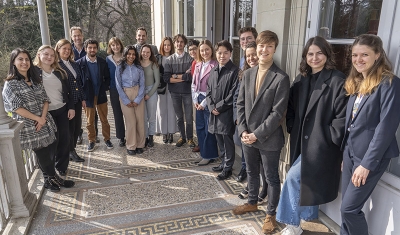Food Insecurity in Armed Conflict
Geneva Academy Talks


ICRC
Hunger, famine, and starvation have been recurrent features of past and present armed conflicts, with conflict being a key driver of acute food insecurity. In turn, food insecurity can also fuel armed conflict, creating a vicious cycle of insecurity and violence. When combined with other factors, such as resource scarcity, conflict-created environmental damage, extreme weather or economic shocks, these risks rise sharply. The United Nations General Assembly and Security Council have recognised the link between conflict-driven food insecurity, and, interconnectedly, the risk of famine, and the unlawful denial of access to humanitarian assistance to civilians in armed conflict and possible threats to international peace and security.
Armed conflict impacts food security in many ways. It destroys or disrupts food systems and infrastructure, affects markets and prices, and reduces access to essential goods and services. Sieges and siege-like tactics significantly worsen these risks. The repercussions often continue long after military operations have ended, spreading to distant populations through price shocks and supply disruptions.
At a time when conflicts across Africa, the Middle East, Europe and Asia heavily affect civilians, many populations face emergency levels of acute food insecurity and high risks of famine. This IHL Talk, held in conjunction with the launch of the first spot report under the IHL in Focus project on Food Insecurity in Armed Conflict and the Use of Siege-Like Tactics, will explore the intersection of armed conflict and food insecurity, through the lens of international humanitarian and human rights law.
You are invited to attend the event in person at Villa Moynier (register here) or online (register here).
Moderator
- Dr Francesco Romani, Research Fellow, Geneva Academy
Panellists
- Prof. Andrew Clapham, Professor of International Law, the Geneva Graduate Institute
- Dr. Krisztina Huszti-Orbán, Lead Researcher, Geneva Academy
- Yousuf Syed Khan, Nonresident Senior Fellow, the Atlantic Council
About the IHL Talks
The IHL Talks are a series of events, hosted by the Geneva Academy, on international humanitarian law and current humanitarian topics. Academic experts, practitioners, policymakers and journalists discuss burning humanitarian issues and their regulation under international law.
Drinks
This event will be followed by drinks.
Disclaimer
This event may be filmed, recorded and/or photographed on behalf of the Geneva Academy. The Geneva Academy may use these recordings and photographs for internal and external communications for information, teaching and research purposes, and/or promotion and illustration through its various media channels (website, social media, newsletters, annual report, etc.).
By participating in this event, you are agreeing to the possibility of appearing in the aforementioned films, recordings and photographs, and their subsequent use by the Geneva Academy.








